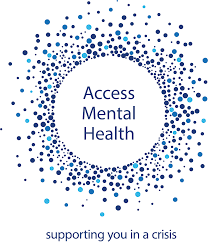
Mental health is a crucial aspect of overall well-being, affecting how we think, feel, and act. Unfortunately, mental health issues are often overlooked or stigmatized, leading many individuals to suffer in silence. The importance of mental health services cannot be overstated, as they provide the necessary support, guidance, and treatment for individuals struggling with mental health challenges. This article explores the significance of mental health services, the role of mental health clinics, and how they can offer a range of treatments to promote mental well-being.
What Are Mental Health Services?
Mental health services encompass a broad spectrum of support aimed at addressing mental health issues such as depression, anxiety, bipolar disorder, schizophrenia, and more. These services are typically provided by trained professionals, including therapists, counselors, psychologists, psychiatrists, and social workers. The goal of mental health services is to help individuals manage or overcome their mental health conditions, improve their quality of life, and regain control of their emotional and psychological well-being.
Mental health services include various treatment options such as:
- Counseling and Therapy: Talking therapies like Cognitive Behavioral Therapy (CBT), Dialectical Behavior Therapy (DBT), and psychodynamic therapy.
- Medication: Prescribing psychiatric medications like antidepressants, anti-anxiety medications, or mood stabilizers.
- Support Groups: Peer-led or therapist-led group settings that provide emotional support.
- Crisis Intervention: Immediate assistance for individuals in acute distress or at risk of harm.
- Residential Treatment: Long-term care for severe mental health conditions that require intensive supervision and support.
Mental Health Clinics: A Vital Resource
Mental health clinics are specialized healthcare facilities dedicated to providing services that address mental health issues. These clinics play a vital role in providing early intervention, diagnosis, treatment, and ongoing support for individuals facing mental health challenges.
Types of Mental Health Clinics
Mental health clinics can vary in their services, but generally, they offer a range of treatments that can help individuals manage their mental health. Some common types of mental health clinics include:
- Outpatient Clinics
Outpatient mental health clinics provide services on a scheduled basis, allowing individuals to visit for therapy sessions or consultations without needing to stay overnight. These clinics typically offer counseling, therapy, medication management, and psychoeducation. They are ideal for those who need ongoing care but do not require 24-hour supervision. - Inpatient or Residential Clinics
Inpatient clinics provide intensive, round-the-clock care for individuals with severe mental health disorders or those in crisis. These clinics are designed for patients who require a structured and supportive environment to stabilize their condition. They often offer a combination of medical, psychological, and social support. - Specialized Clinics
Some mental health clinics focus on specific conditions or populations, such as addiction recovery clinics, trauma centers, clinics for children and adolescents, or geriatric mental health clinics. These clinics provide specialized treatments tailored to the unique needs of these groups. - Community Health Centers
Community-based mental health centers often offer low-cost or sliding-scale fee services to individuals who may not have access to private healthcare. These centers aim to serve underserved populations and provide a broad range of services, including counseling, psychiatric care, and social services.
Services Provided by Mental Health Clinics
Mental health clinics offer a variety of services that cater to individuals’ mental health needs. Some of the most common services include:
- Therapy and Counseling: Individual, group, and family therapy sessions to help patients manage and cope with emotional and psychological issues.
- Psychiatric Evaluation: A thorough assessment by a licensed mental health professional to diagnose any mental health conditions and develop an appropriate treatment plan.
- Medication Management: Psychiatrists may prescribe medications to help manage symptoms of various mental health conditions, such as depression, anxiety, or bipolar disorder.
- Crisis Intervention: Emergency care and support for individuals experiencing a mental health crisis, including risk assessment and immediate intervention.
- Supportive Services: Services like case management, peer support, and educational programs designed to help individuals understand and manage their condition effectively.
Benefits of Mental Health Clinics
The benefits of seeking care at a mental health clinic are immense, including:
- Access to Professional Help
Mental health clinics provide individuals with access to licensed professionals, including psychologists, psychiatrists, and social workers, who are trained to diagnose and treat mental health conditions. - Early Intervention
Early intervention is critical for the effective treatment of mental health issues. Clinics provide timely access to treatment that can help individuals address problems before they worsen. - Comprehensive Care
Mental health clinics offer a multidisciplinary approach, combining various forms of therapy, medications, and support services to create a holistic treatment plan tailored to the individual’s needs. - Confidentiality and Privacy
Mental health clinics ensure patient confidentiality and privacy, creating a safe space where individuals can speak openly about their struggles without fear of judgment or stigma. - Ongoing Support
Mental health clinics provide ongoing care and support to individuals as they progress through their treatment, ensuring that they receive the assistance they need to manage their condition effectively.
How to Choose the Right Mental Health Clinic
Selecting the right mental health clinic is a crucial step toward receiving effective treatment. Here are a few factors to consider when choosing a clinic:
- Accreditation and Credentials: Ensure that the clinic is accredited and that the staff are licensed professionals with experience in mental health care.
- Specialization: Look for a clinic that specializes in treating the specific mental health issues you or your loved one are facing.
- Location and Accessibility: Choose a clinic that is easy to access and fits within your schedule and transportation needs.
- Cost and Insurance: Consider the cost of services and whether the clinic accepts insurance or offers a sliding scale for those without insurance.
- Reviews and Recommendations: Seek recommendations from trusted sources or read online reviews to find reputable clinics.
Conclusion
Mental health services, particularly those offered by mental health clinics, are vital in promoting emotional well-being and addressing mental health challenges. Whether through outpatient counseling, inpatient care, or specialized treatment, these clinics provide crucial support for individuals experiencing mental health issues. The right mental health clinic can provide the necessary resources, therapy, and care to help individuals heal and lead fulfilling lives.
By seeking help at a mental health clinic, individuals can take the first step towards recovery and regain control over their mental health. If you or someone you know is struggling with mental health issues, don’t hesitate to reach out to a mental health clinic for support and guidance.



